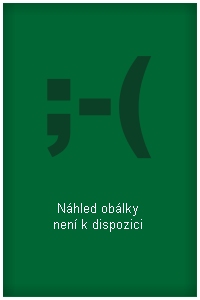
Kód: 05080036
Ethical Archaeologies
Archaeology is no longer an invasive and androcentric pastime practiced by European dilettantes with shared values. But Archaeology remains burdened by imperial, colonial and neo-colonial values that linger and fester. Codified, t ... celý popis
- Jazyk:
 Angličtina
Angličtina - Vazba: Pevná
- Počet stran: 630
Nakladatelství: Springer-Verlag New York Inc., 2014
- Více informací o knize

8383 Kč
Dostupnost:
50 % šance Máme informaci, že by titul mohl být dostupný. Na základě vaší objednávky se ho pokusíme do 6 týdnů zajistit.
Máme informaci, že by titul mohl být dostupný. Na základě vaší objednávky se ho pokusíme do 6 týdnů zajistit.Prohledáme celý svět
Mohlo by se vám také líbit
Dárkový poukaz: Radost zaručena
- Darujte poukaz v libovolné hodnotě a my se postaráme o zbytek.
- Poukaz se vztahuje na celou naši nabídku.
- Elektronický poukaz vytisknete z e-mailu a můžete ihned darovat.
- Platnost poukazu je 12 měsíců od data vystavení.
Informovat o naskladnění knihy
Zadejte do formuláře e-mailovou adresu a jakmile knihu naskladníme, zašleme vám o tom zprávu. Pohlídáme vše za vás.
Více informací o knize Ethical Archaeologies
Nákupem získáte 838 bodů
 Anotace knihy
Anotace knihy
Archaeology is no longer an invasive and androcentric pastime practiced by European dilettantes with shared values. But Archaeology remains burdened by imperial, colonial and neo-colonial values that linger and fester. Codified, these values harden into ethics with culturally and temporally absolute foundations. However, in earlier Western and other cultures thoughts and deeds, ethics are acknowledged as contextual, shifting and negotiated entanglements of intent and practice that often conflict. The word s derivation from the Greek thika philosophia or moral philosophy explicitly situates ethics as socially and politically constructed. Archaeology can study ethical formations by employing different timescales ranging from the longue duree to the very short term and by focusing its potent techniques of cultural surveillance on the origin, history and application of ethics in diverse cultural, economic, political and temporal contexts. However, archaeologists can also mask these contexts unless they are adequately aware of Archaeology s history and of their location in a globalised world order. Archaeologists must balance personal, situational and institutional ethics with regard to people, objects and places past, present and future no easy task. For example, is looting artefacts to feed one s family ethical? How is excavation a destructive technique ever justified? Is modern Indigenous re-use of artefacts, places and symbols cultural appropriation or cultural continuation? Do objects and landscapes have rights ? Responses to such questions are seldom absolute, but neither need they be debilitatingly relativistic. By adopting global coverage that pairs cutting-edge theory with successful and failed case studies, lacunae surrounding foundational disciplinary concepts like the archaeological record ; stewardship , multivocality , as well broader concerns of race, class and gender can be discussed and acted upon - materialising a negotiated best practice for the social sciences in a post-colonial world. Ethical Archaeologies: the politics of social justice would use established and emergent expertise in southern and northern hemispheres to comprehensively and accessibly discuss ethics in the practice of archaeology and related fields such as anthropology, museology, indigenous studies, law, education, heritage management and tourism.
 Parametry knihy
Parametry knihy
Zařazení knihy Knihy v angličtině Humanities Archaeology
8383 Kč
- Plný název: Ethical Archaeologies
- Podnázev: The Politics of Social Justice
- Jazyk:
 Angličtina
Angličtina - Vazba: Pevná
- Počet stran: 630
- EAN: 9781493917358
- ISBN: 1493917358
- ID: 05080036
- Nakladatelství: Springer-Verlag New York Inc.
- Hmotnost: 1908 g
- Rozměry: 235 × 155 × 61 mm
- Datum vydání: 14. October 2014
Oblíbené z jiného soudku
-

Fundamentals of Tree Ring Research
1330 Kč -

Bog Bodies Uncovered
613 Kč -
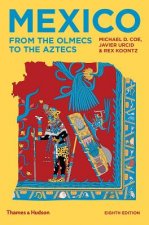
Mexico
516 Kč -

Ancient Treasures
477 Kč -

World Prehistory and Archaeology
2970 Kč -

From Kostenki to Clovis
5094 Kč -

Faunal Extinction in an Island Society
5094 Kč -

Hunter-Gatherer Economy in Prehistory
1011 Kč -

Folsom
2820 Kč -

People and Culture in Ice Age Americas
1978 Kč -

Istanbul
410 Kč -

Oxford Handbook of Archaeological Ceramic Analysis
1352 Kč -

Magical House Protection
793 Kč -

Sumerian World
1613 Kč -

Abusir
1177 Kč -

Master Plan
410 Kč -

In Search of Lake Monsters
613 Kč -

Archaeology
1315 Kč -

In Small Things Forgotten
369 Kč -

Flint Knapping
454 Kč -

Angkor and the Khmer Civilization
666 Kč -
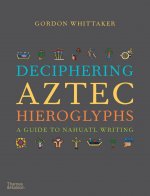
Deciphering Aztec Hieroglyphs
677 Kč -

Archaeology: The Whole Story
676 Kč -

Great Archaeologists
363 Kč -

Archaeology
1474 Kč -

Bigger Than History
355 Kč -

Prehistoric Life - Evolution and the Fossil Record
3175 Kč -

Digging for Hitler
950 Kč -

Tarim Mummies
554 Kč -
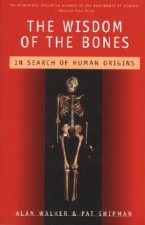
The Wisdom of the Bones: In Search of Human Origins
462 Kč -

Protecting the Body in War and Combat
1479 Kč -
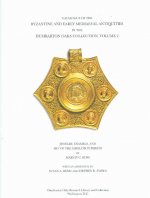
Catalogue of the Byzantine and Early Mediaeval A - With an Addendum Jewelry, Enamels and Art of the Migration V 2
3691 Kč -

Ship Iconography in Mosaics
2672 Kč -
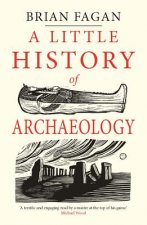
Little History of Archaeology
316 Kč -
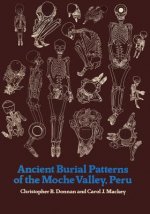
Ancient Burial Patterns of the Moche Valley, Peru
1841 Kč -

Catalogue of Byzantine Seals at Dumbarton Oaks and in the Fogg Museum of Art, 4: The East
1401 Kč -
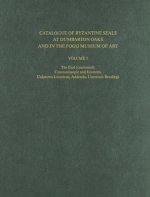
Catalogue of Byzantine Seals at Dumbarton Oaks a - Constantinople and Environs, Unknown Locations, Addenda, Uncertain Readings
1401 Kč -
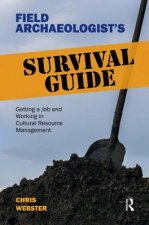
Field Archaeologist's Survival Guide
1336 Kč -

Archaeologist's Manual for Conservation
1830 Kč -

Children, Death and Burial
1678 Kč -

Student Guide to Archaeological Analyses
2230 Kč -

Women in Prehistory
753 Kč -

Three Stones Make a Wall
442 Kč -
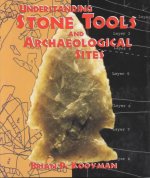
Understanding Stone Tools
1008 Kč -
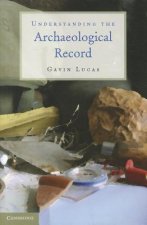
Understanding the Archaeological Record
1054 Kč -
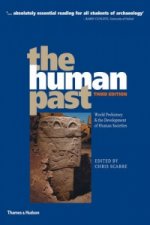
Human Past
1921 Kč -
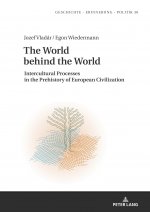
World behind the World
1646 Kč -

Trojans & Their Neighbours
1611 Kč -

Towers in the North
750 Kč
Osobní odběr Praha, Brno a 12903 dalších
Copyright ©2008-24 nejlevnejsi-knihy.cz Všechna práva vyhrazenaSoukromíCookies





 Vrácení do měsíce
Vrácení do měsíce 571 999 099 (8-15.30h)
571 999 099 (8-15.30h)